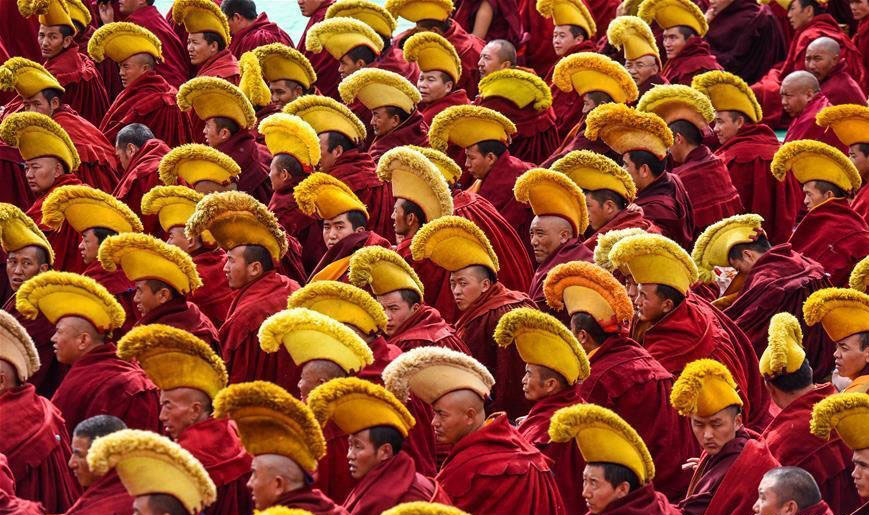(TibetanReview.net, Aug18’21) – To China, religious freedom in Tibet is all about the decision made by it of how many places of worship and monks and nuns are sufficient to meet the people’s need, not how many people want to becomes monks and nuns, letting them do so, and enabling them to pursue their religious study wherever they wish to. The same goes for other aspects of Tibetan culture, especially language rights.
Reporting on the state of religious and other aspects of cultural freedom in Tibet Autonomous Region (TAR), which constitutes about half of the Tibetan territory under Chinese occupation rule, China’s official ecns.cn news portal Aug 18 cited Wu Yingjie, the region’s Party chief, as saying in a recent interview that there were enough of these numbers to meet the local people’s needs.
The report cited the TAR government as saying the region currently had more than 1,700 sites for Tibetan Buddhist activities, one Catholic church, 46,000 monks and nuns, 358 living Buddhas, more than 12,000 Muslims, and more than 700 Catholics in the region.
It cited Wu as saying there were therefore enough religious sites to meet people’s demand for religious activities and enough monks and nuns to serve residents’ various spiritual needs.
The report also said the region now had more than 60 traditional scripture printing houses, including one at the Potala Palace, with the number of categories of printed Buddhist scriptures hitting 63,000 annually.
“That meets all demand for scripture printing in the region,” Wu has said.
He has called Tibetan culture part of Chinese culture, developed through exchange with ethnic Han culture and others.
“Enriched with regionalism, unique Tibetan traditions have become a bright pearl in the treasure house of Chinese culture,” Wu has said, adding Tibetan culture was formed in a process of exchanges and communication with Han ethnic culture and others.
And while continuing to carry out a major campaign in the region to marginalized Tibetan language in the general education curriculum and in public usage under an assimilative Sinicization move launched by President Xi Jinping, Wu has said the Tibetan language had acquired legal protections, becoming the country’s first ethnic language to have international standards in Information Technology.
The interview was carried out in the context of celebrations marking the 70th anniversary of China’s so-called peaceful liberation of Tibet.






